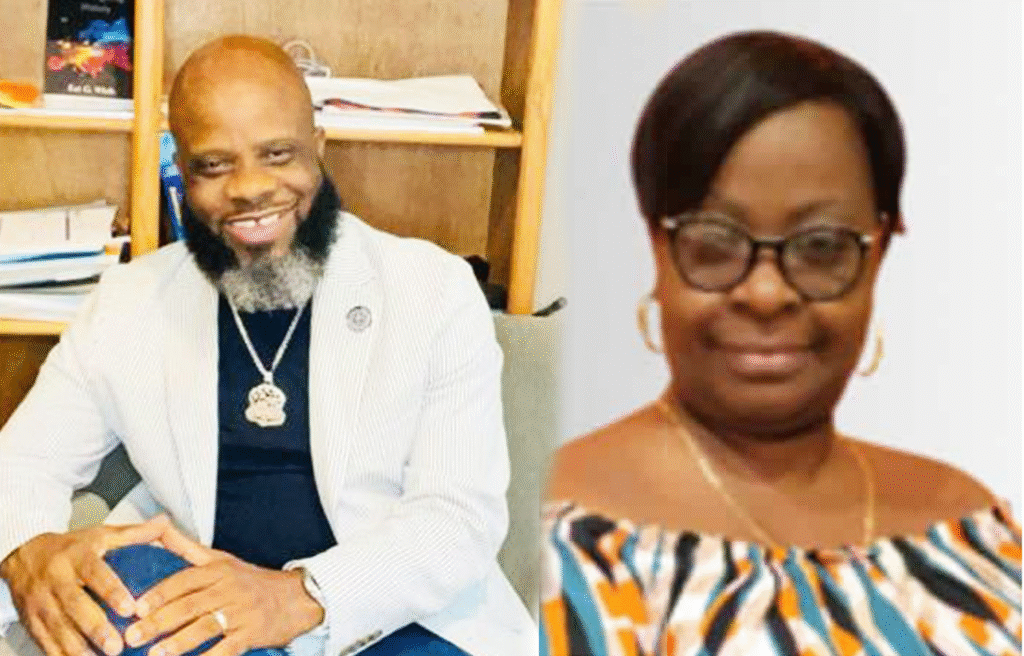The Union of Liberian Associations in the Americas (ULAA), a historically nonpartisan organization representing Liberians in the diaspora, is embroiled in controversy following the appointment of its National Vice President, Mrs. Emmanuette G. Nagbe, to a partisan role within the Citizens Movement for Change (CMC), an opposition party in Liberia. This dual affiliation has sparked widespread criticism from diaspora leaders who believe it compromises ULAA’s neutrality and credibility as an independent advocate for democratic principles and good governance in Liberia. The situation is further complicated by the upcoming ULAA National Convention, where CMC’s founder, Musa Hassan Bility, is scheduled to deliver the keynote address, fueling concerns about the organization’s perceived alignment with a specific political entity.
Central to the controversy is the question of whether ULAA’s leadership can maintain its impartiality while one of its high-ranking officials actively participates in partisan politics. Critics argue that Mrs. Nagbe’s role as Chairperson of the Women’s Wing for CMC-USA creates a conflict of interest and undermines ULAA’s ability to serve as a neutral platform for all Liberians in the diaspora. Mr. Sizi Goyah, Vice Chairman of the Organization of Liberians in Minnesota (OLM), a prominent ULAA member organization, has been particularly vocal in his condemnation of the appointment. He contends that this blurring of lines sets a dangerous precedent and erodes the very foundation upon which ULAA was built. He has called for Mrs. Nagbe to resign from her ULAA position or for CMC to rescind the appointment, emphasizing the incompatibility of simultaneously holding partisan office and representing a nonpartisan institution.
Adding further fuel to the fire is the fact that Mrs. Nagbe’s husband, Mr. Victor Nagbe, holds a prominent position within both CMC-USA and ULAA. He serves as an executive of CMC-USA and chairs ULAA’s Diaspora Affairs Committee. This dual involvement raises concerns about potential influence and further blurs the lines between the organization’s nonpartisan mission and partisan political activity. This complex web of relationships exacerbates anxieties about CMC’s growing influence within ULAA and the potential for the organization to be used as a political tool.
Mr. Goyah has invoked the precedent of former ULAA Vice President Varney Sackey, who resigned from his position upon entering Liberian politics, as an example of the ethical conduct expected of ULAA officials. He contrasts this with the current situation, portraying Mrs. Nagbe’s continued involvement in both ULAA and CMC as a breach of integrity and a failure of leadership. The Organization of Liberians in Minnesota has threatened to take drastic measures if the situation remains unaddressed, including boycotting ULAA activities and withholding financial contributions. They have even hinted at the possibility of reconsidering their membership within ULAA, signaling the potential for a significant fracture within the diaspora organization.
CMC, for its part, has defended Mrs. Nagbe’s appointment, highlighting her experience and influence within the Liberian diaspora community. The party views her involvement as a strategic opportunity to expand its reach and visibility abroad, particularly among Liberian women. This stance underscores the inherent tension between CMC’s political ambitions and ULAA’s commitment to neutrality. The party’s official statement, signed by its Global Chairperson, Dr. Francien Chenoweth Richardson, praises Mrs. Nagbe’s contributions and frames her appointment as a positive development, seemingly disregarding the concerns raised by ULAA members about partisan influence.
The controversy highlights a broader debate within the Liberian diaspora about the role and responsibilities of ULAA. While the organization’s bylaws may not explicitly prohibit partisan activities by its officers, many members believe that even the appearance of bias undermines its credibility and effectiveness. The silence from ULAA’s President and National Executive Committee has only intensified the debate and fueled speculation about the organization’s future direction. As the National Convention approaches, the pressure is mounting on ULAA’s leadership to address the controversy and reaffirm its commitment to nonpartisanship. The organization faces a critical juncture, and its handling of this situation will likely determine its future standing within the Liberian diaspora. The core question remains whether ULAA will prioritize its founding principles of neutrality or risk being drawn into the increasingly turbulent waters of Liberian politics.


